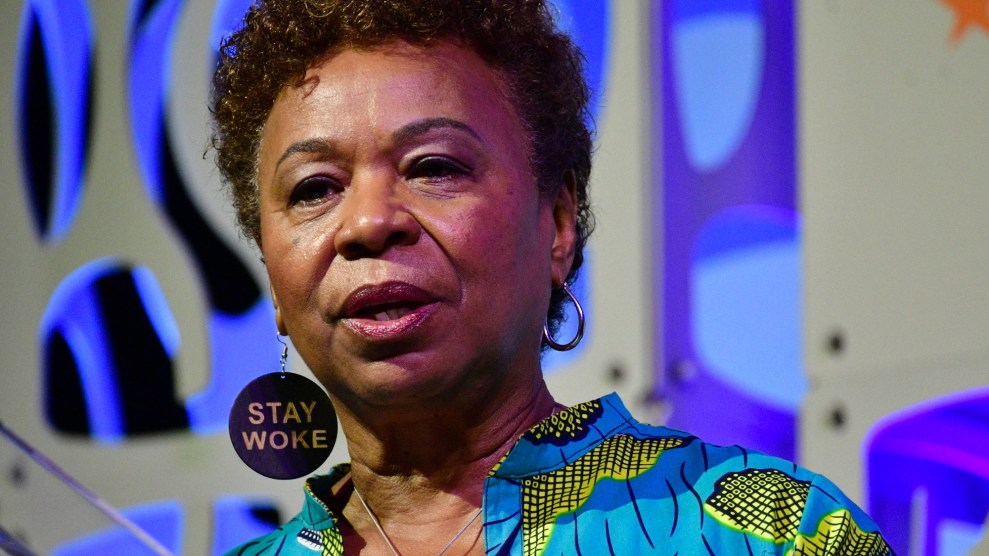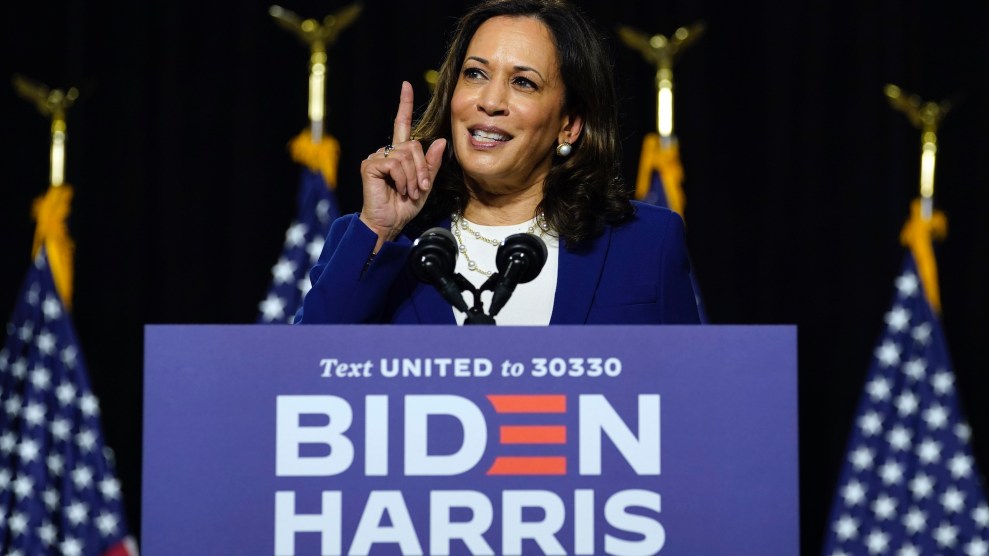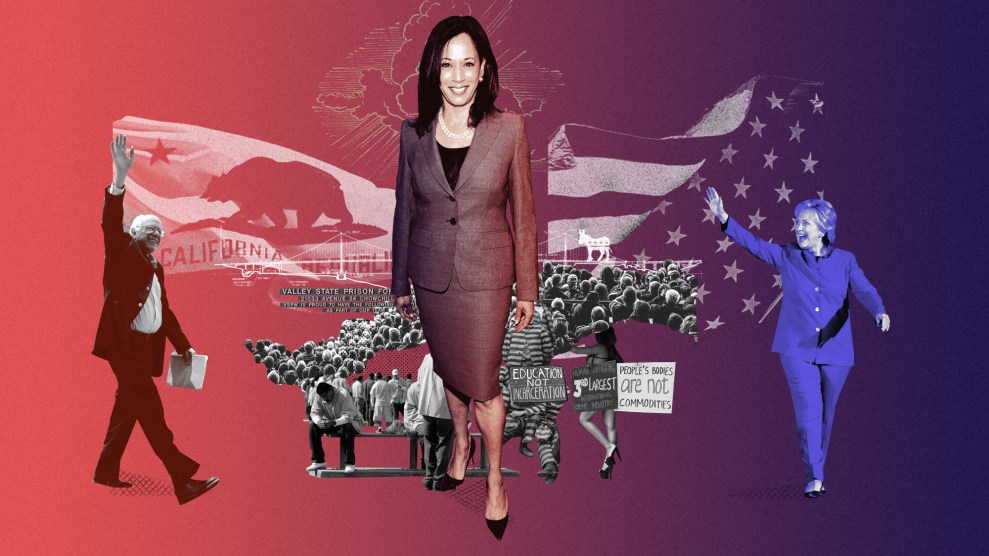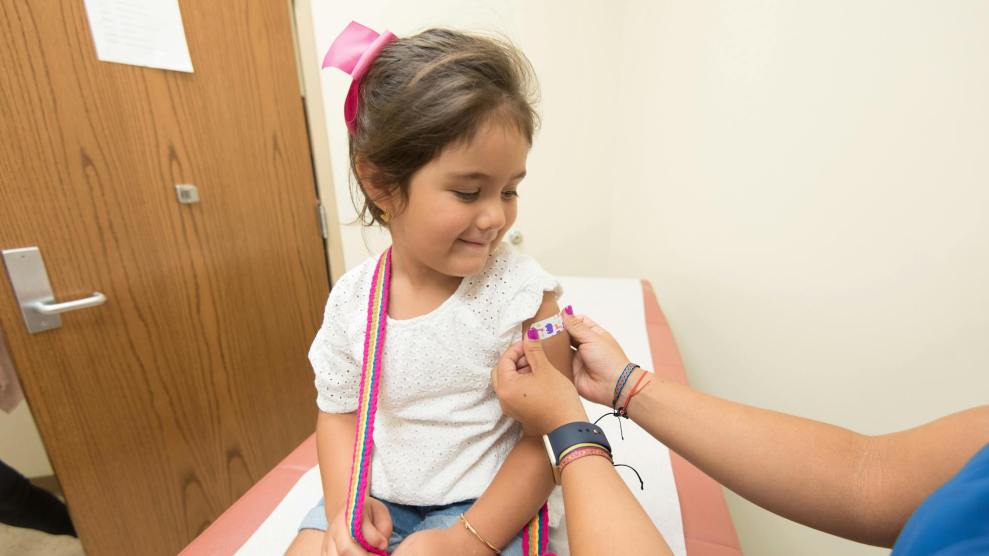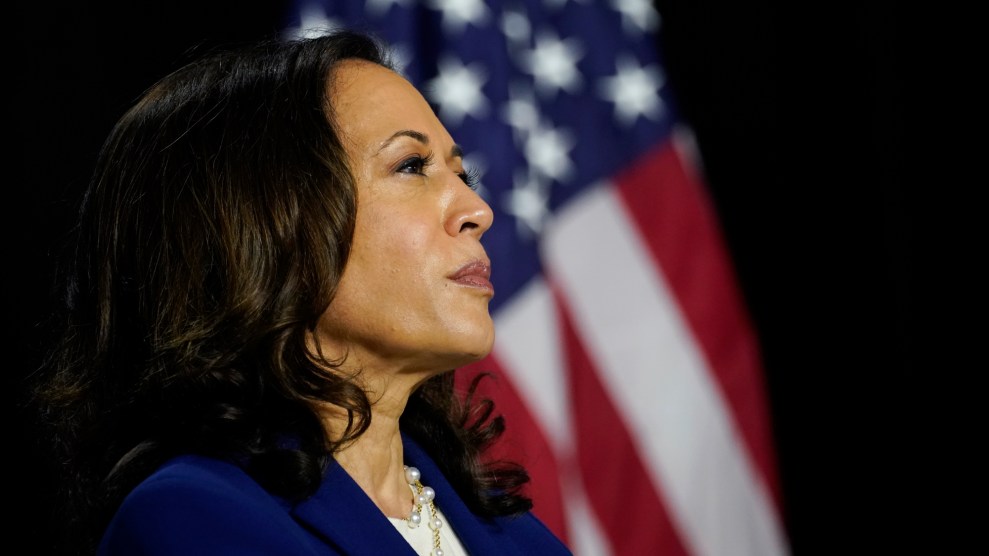
Carolyn Kaster/AP
Wednesday night will mark the biggest accomplishment in the already-dazzling career of Sen. Kamala Harris, when she takes to the (virtual) stage at the 2020 Democratic National Convention to accept her party’s nomination for vice president. The culmination of many “firsts” accumulated across decades by the 55-year-old Californian, this week, Harris will become the first Black woman and the first woman of Indian descent to run on a major party ticket.
But she has always been a barrier-breaker. On this episode of the Mother Jones Podcast, our in-house Harris expert, Jamilah King, traces the senator’s political awakening back to her progressive-minded Indian mother, and charts her formative years as San Francisco district attorney, her elections first as attorney general of California and then as senator, to this historic moment—on the precipice of a historic run for the White House.
This time Jamilah will occupy the interviewee hot seat, while Mother Jones reporter Fernanda Echavarri takes over hosting duties, guiding listeners through a detailed assessment of Harris’ time as a prosecutor (and its potential political baggage), her forceful Senate appearances as inquisitor (and antagonist) of Trump appointees, and what her presence on the ticket means for presidential hopeful Joe Biden—and the country.
Listen to the episode, below:


